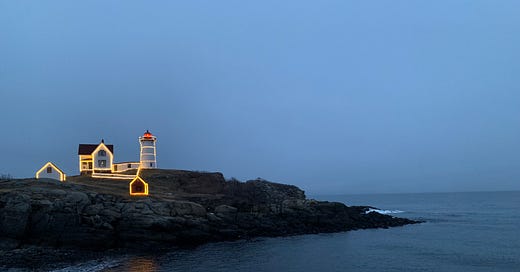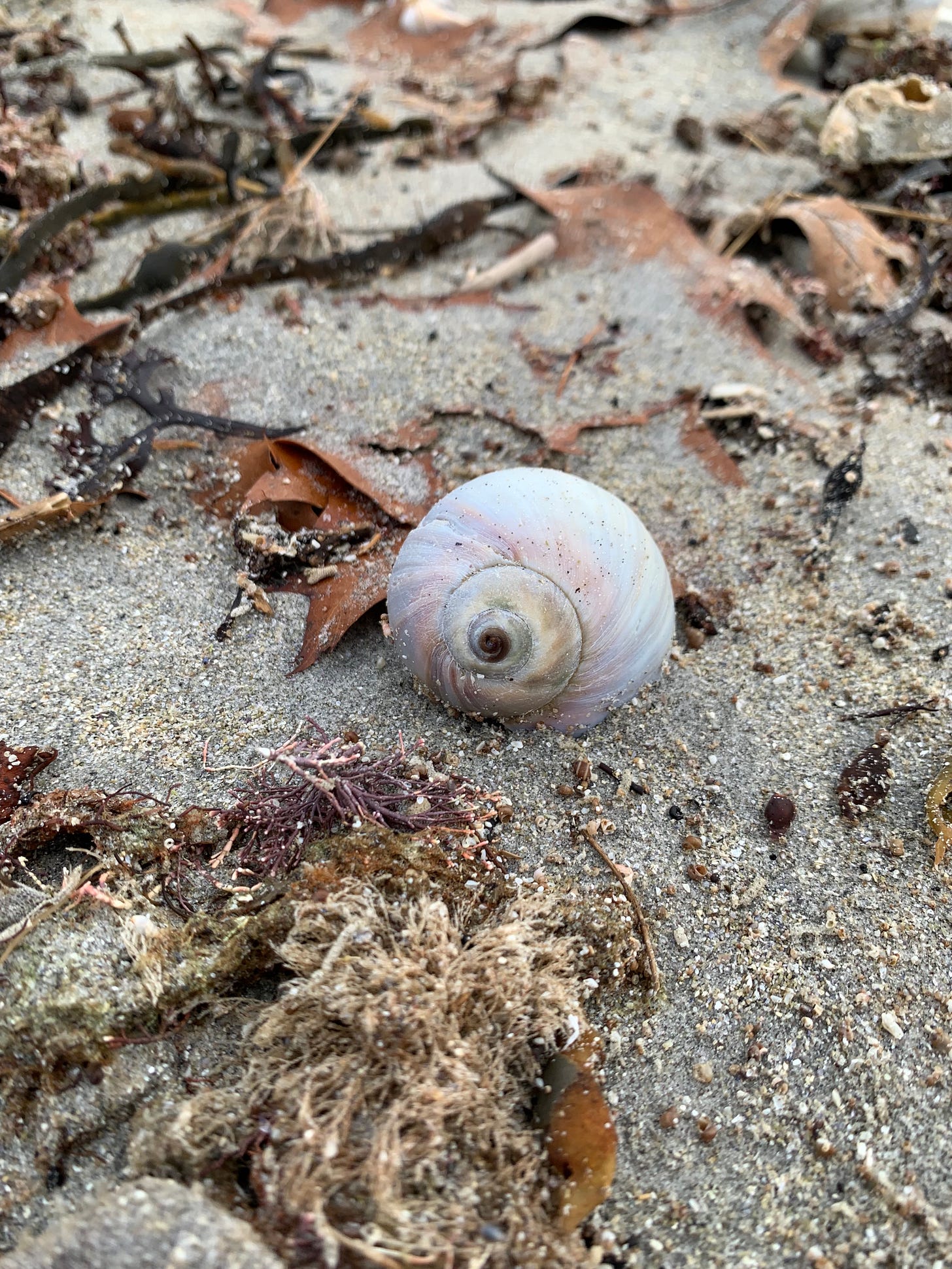Hi, hitting the like button is a great & free way to support this project. <3
To listen to me read this Offering aloud, click here.
Dear Readers,
I’ve been writing this newsletter since 2016, when I first started writing and sending Tarot Offerings monthly. In 2021 I moved over to Substack, where I began writing weekly under the Offerings title, which I hoped would allow space to grow beyond tarot. I’d just put the finishing touches on Tarot for Change, and was eager to share all the new things I was learning.
It took about two years writing Offerings weekly for a theme to begin to emerge. I have a lot of respect for those periods of incoherence and chaos in creative life, when it’s not clear what—if anything, and that if almost always feels big—will emerge from the wonder and seeking. Something did emerge this time thank goodness, and it was during a yearlong narrative therapy program with Jill Freedman and Gene Combs that I began barely discerning its edges.
Through the lens of the “narrative worldview,”1 I became fascinated by two things:
The ways significant relational losses—bereavements, break-ups, life-altering diagnoses or chronic health conditions, climate disasters, pandemics—despite all their differences, can illuminate and affirm the relational nature of both identity and emotional life, and
how the stories we tell to ourselves and each other about grief, loss, and mourning affect what we go through and what it can all come to mean.
2023 was a difficult year for me, and for many. It was a year that exposed the inescapable vulnerability of being human, and capable of forming attachments not only to significant others but also beliefs about how the world is. As usual, I sought solace in words that might adequately describe my experience. Like Judith Butler’s Precarious Life: The Powers of Mourning and Violence, in which they write:
“Loss has made a tenuous ‘we’ of us all…Loss and vulnerability seem to follow from our being socially constituted bodies, attached to others, at risk of losing those attachments, exposed to others, at risk of violence by virtue of that exposure…one mourns when one accepts that by the loss one undergoes one will be changed, possibly for ever.”
I’ve had concerns about the consequences of writing on grief, week after week after week. Will I be seen as fixating? Will I be redundant? Will I lose readers? I’m sure that the answer to all of these things has been yes. But my worries have taken a backseat to the beliefs I have; that the meanings we make in loss condition what’s possible through mourning, and that there is value in trying to understand this experience of losing. Because tenuous as “we” turn out to be, we all lose. And to lose—as opposed to simply enduring a change—is inherently emotionally tough.
I’ve spent the last several months reflecting on Offerings. The newsletter has changed so much since I started writing it in 2016, and so it’s felt important to spend time clarifying what I’m up to with it, why it matters, how I want to move forward, and what I need to realistically do so.
I recently finished Jonathan Lear’s Imagining the End, which elucidated some things that have been helpful in discerning the future of Offerings. For Lear, the meaning-making humans do in response to our losses is part of what constitutes our flourishing. The way we mourn is our attempt to “turn loss into a reanimated gain—in imagination, thought, emotion, and importantly, symbolic expression.” After a loss we “come to life,” transforming “what would otherwise be a mere change into loss.” This has been my experience with Offerings.
In a sense we make loss by mourning. In expressing our grief, we insist that whatever was lost did in fact matter. When we share the meanings we make through this process with others—whether through writing, music, visual arts, or other artistic mediums—we are participating in the formation of culture. This is how we develop as beings with histories, with “pasts that matter to us…pasts that partially constitute our present by shaping our sense of what is important.”
Significant loss is often disorienting, which can make it tough to discern what matters. Mourning is one of the ways that we grapple with this, assessing and revaluing our lives and pursuits in a processual, ongoing way. For Lear, what many refer to as “the humanities” is a living and historical tradition of such “attempts to keep this form of mourning alive in a shared public arena.” It’s a way of making and remaking values, and of negotiating key concepts like justice and freedom and love. I find this idea that the humanities are a form of mourning and a mode of human flourishing to be beautiful, compelling, and useful.
The public writing I do has changed a lot in a relatively short period of time. I’m grateful to those who’ve hung around, enduring the changes, and to those who’ve more recently joined. The last year-and-a-half’s explorations in grief, loss, and mourning have asked something of readers that I’ve had doubts you’d desire to do, which is to stick with a grief process that’s open-ended, ongoing, and that refuses all inclinations toward a quick resolution. Or even resolution, at all.
I know that not everyone wants to read about grief every week. But because I’ve just scratched the surface, and there’s a LOT more to read and to learn, I’ve decided to make grief, loss, and mourning the explicit focus of Offerings. I’m especially interested in eclectic descriptions, so while loss will be the newsletter’s focus, I don’t anticipate any difficulty preserving the sort of intellectual promiscuity—tempered, I hope, with increasing rigor—that’s made Offerings what it is all these years.
Writing Offerings as part of a research project on grief, loss, and mourning is something that I can only do because paying subscribers make it possible for me to spend my time reading and fleshing things out instead of doing other things to make money. I would like to imagine that Offerings, then, is a way for me to report back to you—the project’s funders—what I’m up to and finding, in hopes that you might benefit from the work that I’m doing, which you’re making possible.
Offerings will continue to include weekly-ish newsletters in both text and audio formats which will include summaries and key takeaways from texts and other sources on grief, loss, and mourning plus the usual efforts to make meaning across disciplines; namely feminist theologies, philosophies, and mythologies. This year, I’ll also be conducting and sharing audio interviews with people who are thinking carefully and thoroughly about different aspects of grief experience, which I hope you’ll find useful.
In being more explicit about what your fee is going toward, my hope is that you can feel good about that $5 a month, $50 a year, or larger amount of your choosing. Your contribution goes directly toward making this project sustainable.
And none of this would exist without the vast majority of you who are non-paying subscribers, and who I am unceasingly grateful for. I will continue to share as much as I can with the “big list”—nearly thirty thousand of you—who make room for Offerings in your inbox each week.
If you’re not in a position to support financially (or simply don’t want to) hitting the like button is a great way to show love for the project. No one wants to be tethered to internet likes, but with all that goes into making these things I honestly, hugely appreciate them. It probably also does something helpful, algorithmically speaking.
Thank you so much for being here, happy new year, and we’ll see you next time.
Onward,
Jessica
To listen to me read this Offering aloud, click here.
Freedman and Combs describe the narrative worldview on their website as follows: “We work with meaning, and we believe that the meaning of life events comes from the stories that people tell themselves and each other about those events. The same events can be storied in a variety of ways and these different ways will make a difference in how life is experienced. The dominant discourses in our society powerfully influence what gets ‘storied’ and how it gets storied.” Shifting into the narrative worldview allows us to “see a whole different world, one in which the discourses that support problems become more visible. In this world, we can more easily oppose, undermine, or alter the influence of those discourses, making robust, viable non-problematic life stories more possible.”







I’m happy to read whatever you write, Jessica!
Your writings have helped my own process immeasurably. Thank you! 🙏🏻
I am so appreciative of your Offerings, Jessica! Thank you for your careful mastication and presentation of thoughts and feelings that, I feel, "the world/society" asks us to just swallow as quickly as possible, to get it out of their sight. Grief and sadness and disorientation are unsavory and I feel that we are asked to hide our experiences with it so as not to be disruptive. So thank you for putting light onto it and curiosity too. I learn so much from your newsletters. 🫀